Four work package leaders agreed to answer a few questions and share their impression of achievements regarding their work packages, challenges, and their overall contribution in an exclusive interview.
Work Package 4 – Production
Marjaana Karhu (VTT Technical Research Centre of Finland)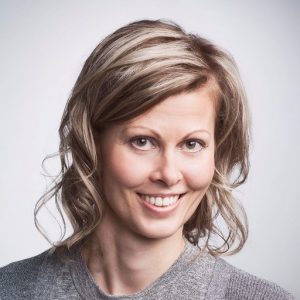
SCRREEN: What was your contribution to the project?
Marjaana Karhu (VTT): I have been working as work package leader in WP4, Production and I also contributed to Substitution of CRMs in WP5 as well as Technology gaps and barriers work in WP6.
SCRREEN: What has been the main achievement of this WP?
Marjaana Karhu (VTT): The main achievement of WP4 Production is a creation a collective databank of the main existing production technologies for CRM from primary resources (mining), secondary resources (waste/scrap from processing and manufacturing activities), end-of-life products and historical waste (disposal areas). Additionally, the gaps in processing that limit ‘closing the loop’ for CRM recovery were identified.
SCRREEN: What are the main challenges related to CRM recovery?
Marjaana Karhu (VTT): Despite the fact that several CRMs have a high technical and real economic recycling potential, the recycling of CRMs is still generally low. The main challenges are related. Firstly, the fact that sorting and recycling technologies for many CRMs are not yet available at competitive costs. Secondly, the supply of many CRMs is locked up in long-life assets that hinders recycling. Thirdly, the demand for many CRMs is growing in various sectors and thus the contribution from recycling is largely insufficient to meet the demand.
Work Package 6 – Technology gaps/barriers and innovation pathways in CRMs value chain
SCRREEN: What was your contribution to the project?
Michael Samouhos (NTUA): NTUA was leader is WP6, while we also contribute in Mapping CRM supply for EU from primary and secondary sources (WP3) and WEEE Issues (WP8).
SCRREEN: What has been the main achievement of this WP?
Michael Samouhos (NTUA): We identified the technological gaps and barriers which impede exploitation of CRMs by primary and secondary resources and, as well as, their substitution by non-critical alternatives. Innovative processes (especially in the sectors of secondary resources recycling and the development of alternatives) based on specific technological and non-technological indicators, proposes the most exploitable CRMs and the respective promising technologies.
SCRREEN: What are the main technological gaps and barriers in CRMs value chains that hinder substitution solutions in industrial applications?
Michael Samouhos (NTUA): WP6 results proved that the substitution possibilities are poor. CRMs are irreplaceable in the majority of applications as their alternatives present poor physico-chemical properties. In most of cases, CRMs alternatives have not been tested at pilot or commercial level.
Work Package 7: Policy issues
Günter Tiess (MINPOL)
SCRREEN: We conducted expert groups and stakeholders workshops, could you describe them? What were the main impacts?
Günter Tiess (MINPOL): Expert groups and stakeholder workshops were conducted to receive updated and first-hand inputs on ongoing challenges, good practice examples and effectiveness of in-place, proposed and non-existent voluntary standards, regulations and policies. Workshops acted as forums and were instrumental to check the right orientation of the project, disseminating the project to a wider audience and in inviting new experts to the SCRREEN expert network. Exchanges with experts at workshops allowed us to iteratively discuss and test preliminary results and enrich the policy recommendations as they were drafted. All in all, workshops were very useful to validate the WP7 preliminary results from the perspective of different stakeholders and improve policy recommendations in terms of feasibility and coherence.
The themes of the workshops with direct relevance for WP7 addressed each of the themes investigated in WP7:
- identification of business & policy issues/background
- identification of standards, regulations and policies in the EU and its Member States
- assessment of their impact and gaps
- policy recommendations
Such themes were surveyed in various workshops, webinars and events. For instance, the Resources Workshop (Rome, July 2018) addressed the question of impacts of standards, policies and regulatory framework on CRM value chains whereas a session during the 2018 Raw Materials Week address the topic of “How to reinforce EU Supply of CRM – deploying new value chains”. Workshops impacted directly on the attending audience by transferring knowledge of the conducted research and stimulating a different approach to policy questions related to CRM and the Raw Materials Initiative. Workshops also positively impacted on the 3-year research process as they provided rich and valuable inputs, examples and good practices of how different sectors, countries and stakeholders find innovative ways of dealing with CRM-supply, substitution and recycling issues.
Work Package 11 – Clustering
SCRREEN: What was the aim of the clustering activities?
Pierre Menger (TECNALIA): In the frame of SCRREEN, the aim of the clustering activities was to achieve a better knowledge on on-going activities in other EU funded projects on CRM, either from H2020 or EIT Raw Materials. Beyond this, SCRREEN clustering activities also aimed at facilitate a consensus on CRMs along the different existing projects. This was meant to help avoiding duplicating work and improve efficiency. Further, CLUSTERING also enabled to provide evidence basis for planning R&D activities and gaps in Europe in up-coming R&I programmes. This specific networking activity allowed the projects to report on major outcomes and allow for an assessment of the impacts achieved. Altogether, SCRREEN clustering activities consisted in 3 specific meetings during which a total of around 50 projects could be represented on specific CRM issue, ranging from supply of CRM to circular economy concerns.
Click here to watch a previous interview with Pierre Menger on the SCRREEN project.
Comments are closed.

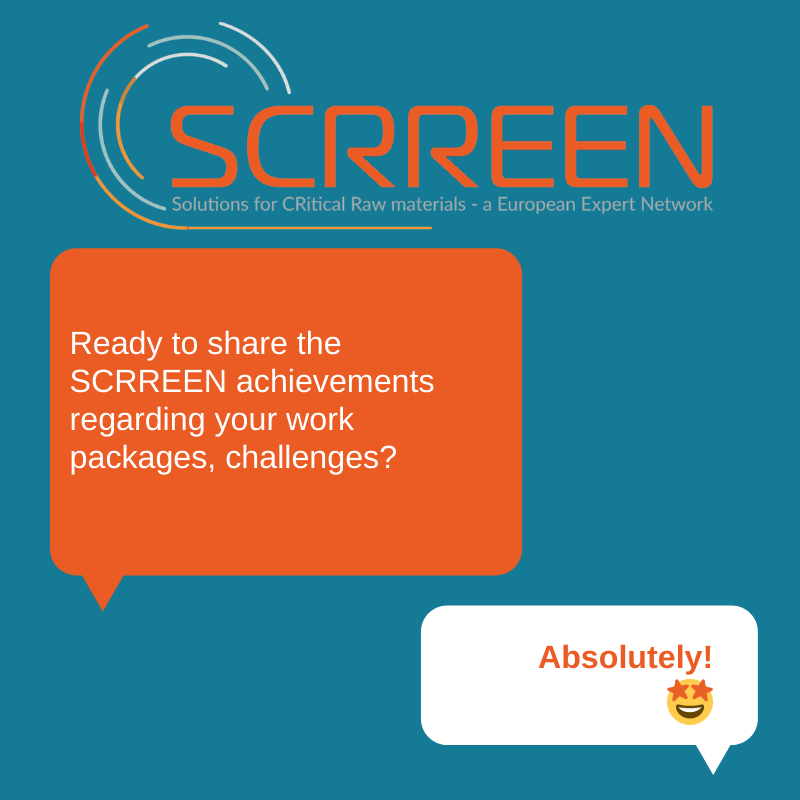
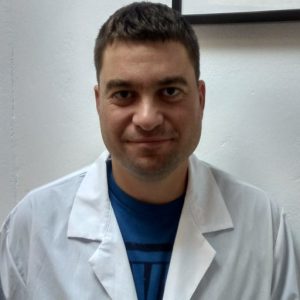
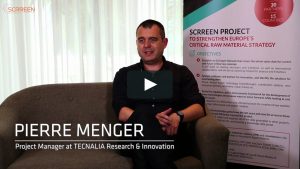
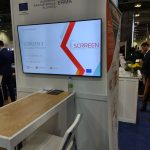
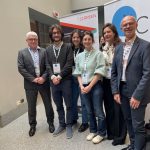
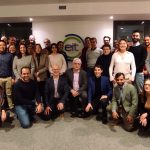
 The SCRREEN3 project has received funding from the European Union's Horizon Europe Research and Innovation Programme under Grant Agreement N° 101138060
The SCRREEN3 project has received funding from the European Union's Horizon Europe Research and Innovation Programme under Grant Agreement N° 101138060